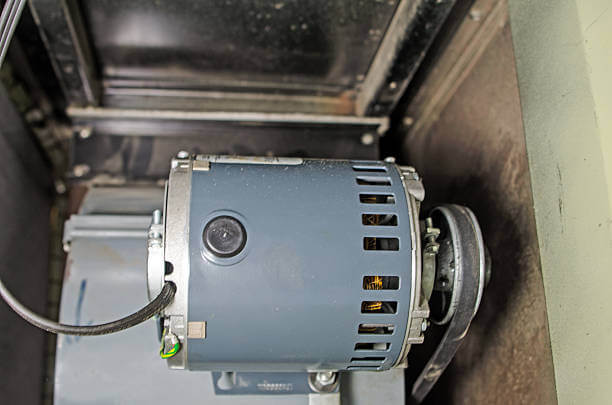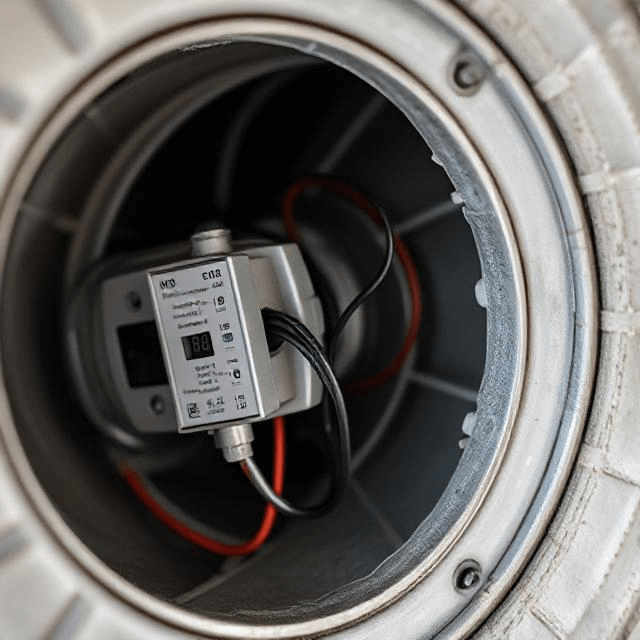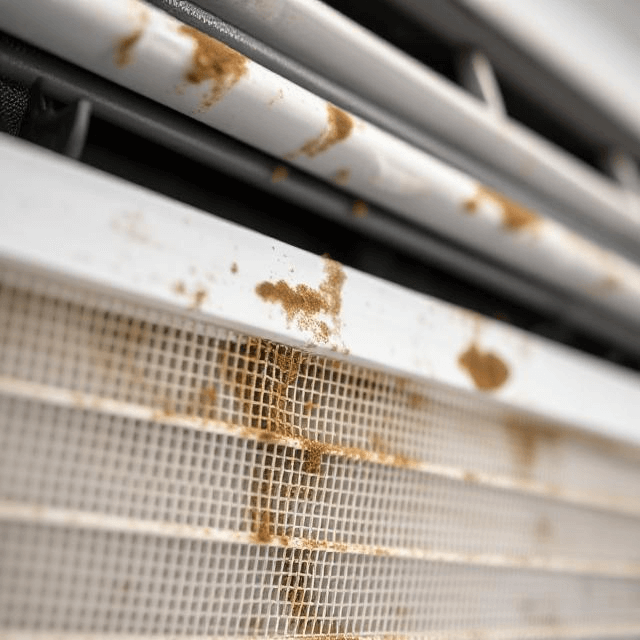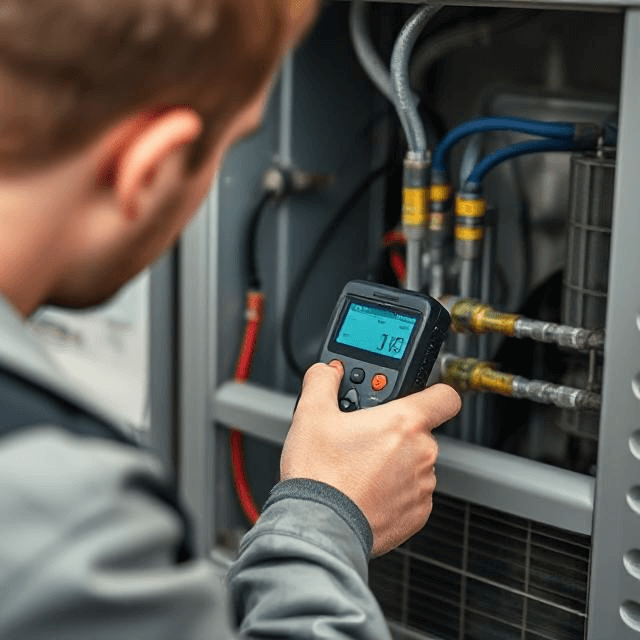Is your furnace blower not working as it should? The problem could be a bad blower motor capacitor.
You can identify a bad blower motor capacitor by humming noises, repetitive clicking, short cycling, no heat production, acrid smells, or erratic motor behavior.
A faulty capacitor can lead to inefficient heating and increased energy costs. Identifying a bad capacitor helps maintain your furnace’s optimal performance.
Keep reading to know the key signs of a bad blower motor capacitor and the simple steps you can take to test it.
How to Tell if the Blower Motor Capacitor is Bad
Your furnace’s blower motor capacitor is bad if there are unusual humming noises when the furnace starts, indicating the capacitor struggles to power the motor.
Also, repetitive clicking sounds without the furnace activating can signal capacitor issues. Short-cycling, where the furnace rapidly turns on and off, often points to capacitor malfunction.
A complete lack of heat or furnace activation, especially after adjusting the thermostat, is critical. If you notice an acrid burning smell or the blower motor exhibiting erratic behavior, these, too, can be symptoms of a failing capacitor. For an accurate diagnosis, consult a professional contractor like Season Control HVAC.
Signs of a Bad Furnace Capacitor
Understanding whether the blower motor capacitor in your furnace is failing is crucial for maintaining a functioning heating system. The capacitor starts the blower motor and keeps it running. Here are vital signs that indicate a bad furnace capacitor:
- Humming Noises: When a capacitor begins to fail, it may emit a low humming noise as the furnace starts. This sound occurs because the capacitor struggles to send enough power to the motor. In some cases, the furnace might eventually blow air; in others, the humming continues without heat production.
- Clicking Sounds: A single click is normally heard when the furnace turns on. However, a malfunctioning capacitor may cause repetitive clicking sounds without the furnace starting. This is due to the capacitor’s inability to sustain the necessary power to keep the system running.
- Short-Cycling: A failing capacitor can lead to short cycling, where the furnace turns on and off rapidly. This happens because the capacitor cannot maintain a consistent power flow, causing the furnace to overheat and triggering the safety limit switch to prevent damage.
- No Heat Production: One of the most noticeable signs of a bad capacitor is the total absence of heat. The furnace does not start at all, even after adjusting the thermostat. While this can indicate various issues, a faulty capacitor is a common culprit.
- Acrid Burning Smell: If you notice a burning smell coming from the furnace, it could be due to electrical issues related to a failing capacitor. In such cases, turning off the furnace immediately is important to prevent further damage.
- Humming from the Blower: A humming sound, especially when the motor struggles or binds, can indicate capacitor issues. This happens when the capacitor fails to provide enough power to start the motor.
- No Power At All: A completely non-functional blower motor, possibly accompanied by tripped circuit breakers, can signal a capacitor failure. Due to an electrical fault, the capacitor might not provide any power to the motor.
- Erratic Motor Operation: A bad capacitor may cause the blower motor to run slower than usual, overheat, or short-cycle. This is because the capacitor is responsible for regulating the power supply to the motor, and its failure can disrupt this process.
Will the furnace blower run with a bad capacitor?
When a furnace blower’s capacitor fails, the blower often struggles to function or might not run at all.
The capacitor is a crucial component that provides the initial burst needed to start the blower motor. If the capacitor is bad, the motor may hum without starting, start slowly, or not start at all.
In some cases, it may run intermittently or at a reduced efficiency, leading to poor airflow and an unevenly heated home. This is especially noticeable in HVAC systems where the blower motor relies heavily on the capacitor’s stored energy.
Homeowners should recognize these symptoms as potential signs of a capacitor issue. If suspected, a technician should be consulted to diagnose and replace the faulty capacitor. Regular HVAC maintenance can prevent such problems and ensure your furnace blower runs efficiently, maintaining a comfortable and warm environment in your home.
How Long Does a Furnace Capacitor Last?
The lifespan of a furnace capacitor typically ranges between 10 to 20 years, but it can vary depending on several factors. These factors include the capacitor’s quality, the frequency of furnace usage, power fluctuations, and the general maintenance of the HVAC system.
Regular maintenance helps identify signs of wear and extend the capacitor’s life. However, the capacitor may need replacement sooner in environments with high usage or fluctuating power supply. Homeowners should inspect their HVAC system annually to ensure all components, including the capacitor, function properly.
How Do You Test a Capacitor on a Blower Motor?
To test a capacitor on a blower motor, ensure the power to the furnace is turned off for safety. Then, locate and carefully remove the capacitor from the motor.
Attach the multimeter leads to the capacitance’s terminals using a multimeter set to the capacitance setting. A functioning capacitor will show a reading close to its rated capacitance value.
If the reading is significantly lower or there’s no reading, the capacitor may be faulty. Handling capacitors with care is important, as they can retain a charge. If you’re unsure or uncomfortable with the process, seek assistance from a professional like Season Control HVAC.
Call (818) 797-7917 for Furnace Inspection and Repair!
If you’re experiencing issues with your furnace, particularly a bad blower motor capacitor, call Season Control HVAC at (818) 797-7917.
Our team is equipped to diagnose and resolve any furnace problems, ensuring your home remains warm and comfortable. We specialize in comprehensive furnace repair and maintenance services, including capacitor checks and replacements.
With Season Control HVAC, you can trust that your heating system is reliable, providing expert heating repair in Canoga Park.









